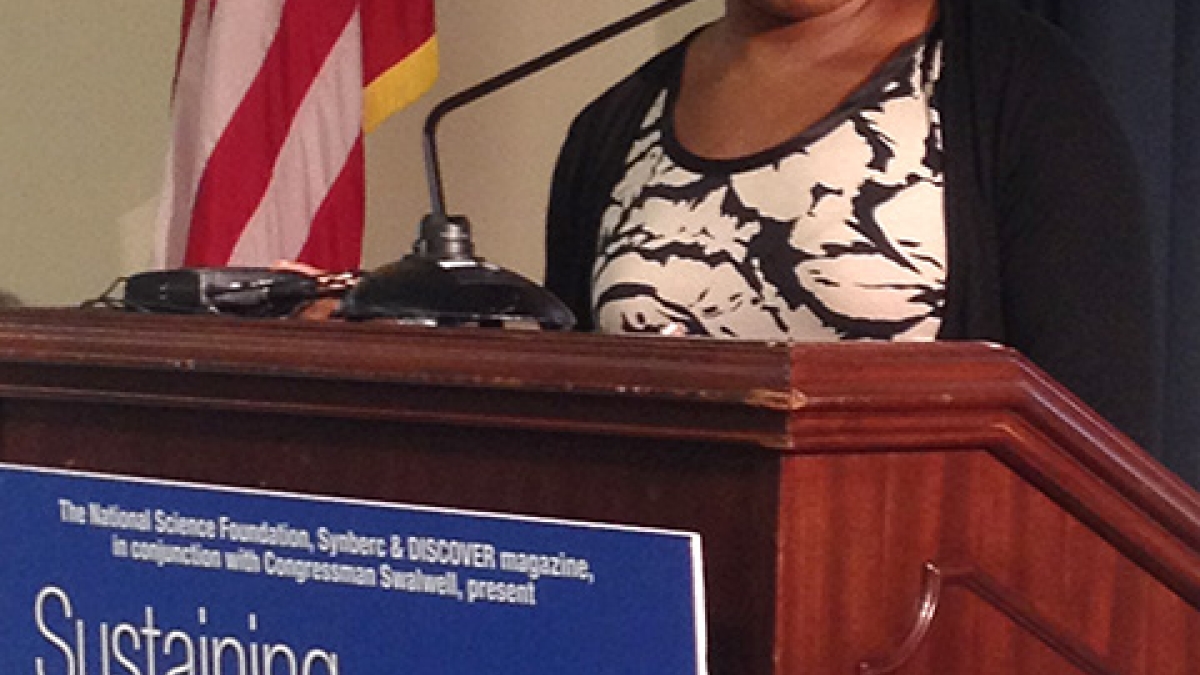ASU professor speaks to Congress about supporting synthetic biology research

Karmella Haynes was among scientists and engineers to address national leaders at a recent U.S. Congressional briefing on issues raised by the emerging field of synthetic biology.
Haynes is an assistant professor in the School of Biological and Health Systems Engineering, one of Arizona State University’s Ira A. Fulton Schools of Engineering. She is among educators and researchers using synthetic biology techniques in pursuit of solutions to many of society’s major biotechnology and medical challenges.
The field combines biological sciences and engineering in designing and creating new manufactured biological systems and devices, as well as redesigning existing natural biological systems to maintain and enhance human health.
Researchers are using the capabilities of synthetic biology to probe the fundamental makeup of biological systems, enabling them to do things such as modifying and reprogramming body cells and DNA to perform medicinal functions. Such techniques are also being used in plant biology to enhance agriculture.
The rapid advance of synthetic biology has prompted discussions about how to weigh the benefits of the research against potential social and ethical implications, and concerns about safety.
Haynes and two colleagues – Steve Evans and Jay Keasling – gave presentations on those questions to staff members representing members of Congress, National Science Foundation officials, science journalists and other interested parties.
Evans is a research fellow at Dow AgroSciences, a part of the Dow Chemical Company that focuses on sustainable agriculture.
Keasling is the chief executive officer of the Joint BioEnergy Institute, assistant director at the Lawrence Berkeley National Lab and a professor of biochemical engineering at the University of California, Berkeley. He is also director of the National Science Foundation-supported Synthetic Biology Engineering Research Center (SynBERC), which helped to organize the Congressional briefing. Haynes is an affiliate researcher with SynBERC.
The speakers stressed the importance of increasing public awareness of synthetic biology as a way to foster confidence about the methods and the goals of researchers. “We want to inform more people to prevent unfounded fears that might hinder work that has great value for addressing society’s needs,” Haynes said after the briefing.
The audience was also told it will be increasingly important to have experts in the field working with the Environmental Protection Agency and the Food and Drug Administration to help keep government regulations up to date on rules related to biological research and biotechnology development. Current regulations “need to be more aligned with technology that is coming from synthetic biology,” Haynes said.
Arizona State University “was highly visible” at the briefing, she said, due particularly to talk about the Workshop on Research Agendas in the Societal Aspects of Synthetic Biology to be hosted by ASU in November.
“We hope we convinced everyone at the briefing that sustained support for biomedical engineering is in the best interests of the nation,” Haynes said.

